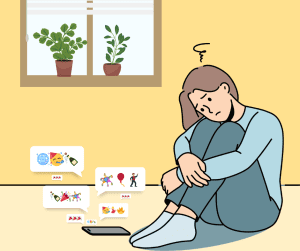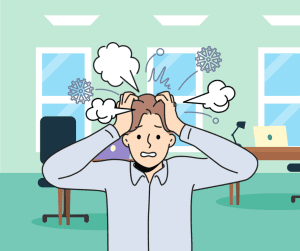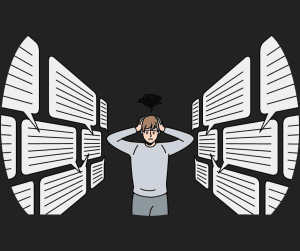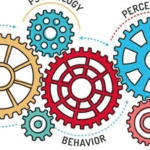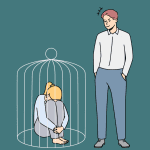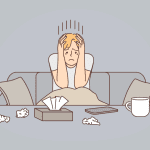
I am feeling so run down. At home, my parents are constantly fighting and I often get caught in the middle of their arguments. At school, I carry my worries with me and this makes it difficult for me to concentrate during class. Exam time is coming up soon, and I’m feeling the pressure of all the homework I have to do, private lessons I need to go to and all the subjects I must study hard for. I stay up at night worrying about how things will turn out and at school I started keeping to myself during break because I’m afraid of what my friends might think of me if they see how stressed out I’m feeling.
We all experience stress at some point or another during our lives, as children, teenagers and even adults. I’m sure we’ve all heard the phrase “I’m so stressed!” and may have also been the ones feeling that way.
Even though we all experience stress, the way we experience it differs from one person to another. What may cause stress to me might not be so stressful to someone else.
Stress can take on different forms. It does not only affect the way we feel, but can also cause changes in our body. Emotionally we may feel confused, anxious, worried, and overwhelmed. Physically stress can cause headaches, difficulty sleeping, acne outbreaks and stomach aches. Stress can also have an effect on our behavior. For example, it may lead to overeating or drinking too much alcohol.

Wow, all those things can be related to stress! So what exactly is stress?
In simple terms, stress is what you feel when there is something worrying you or making you feel uncomfortable. A situation, which is perceived as a threat or challenge, triggers a biological response in your body, known as the fight-or-flight response. For this, the body also produces cortisol, known as the stress hormone, which in turn triggers a number of physiological responses, such as an increasing breathing and heart rate and slowing down digestion. This helps keep the body on high alert mode by for example, regulating its use of energy.

We can say that there is good stress and bad stress. In small doses the stress response will help you to prepare for challenging situations. When the challenging situation has passed your body will then be able to relax. However, feeling stressed out all the time and having your body constantly in high alert mode can leave you feeling drained and will deplete the body from energy to use on other important functions such as your immune system.
5 Tips on Managing Stress
- Exercise! A little bit of exercise added to your routine can go as far as reducing sleeping problems; increased heart rate and anxiety linked with stress.
- Change your perspective! The way you look at a situation can determine how stressed out it leaves you feeling. Taking a step back and viewing a stressful situation as a challenge rather than a threat can help you in feeling more mentally and psychologically prepared to face it.
- Breathe! Deep breathing techniques can help the body achieve a calmer state. We are constantly caught up in thought, our mind jumping from one thing to the next that it can be very easy to get carried away from the present. Focusing on your breathing can help you feel more grounded and in control.
- Listen to yourself! Become aware of what your body is trying to tell you. If too much stress is causing you to feel tired and run down, your body might be telling you it is time to slow down a bit and take care of your well being needs.
- Reach out for support! Research suggests that social support helps people feel less stressed and improves health. Simply sharing your experience with another can make it feel less heavy. Call up a friend, talk to a family member or come and chat to us here at Kellimni. You don’t have to go through it alone.
Today is Stress Awareness Day. In celebration of this day, try to apply one of these tips to your day. Remember, here at Kellimni.com we are available to chat, smart message or e-mail 24/7!
